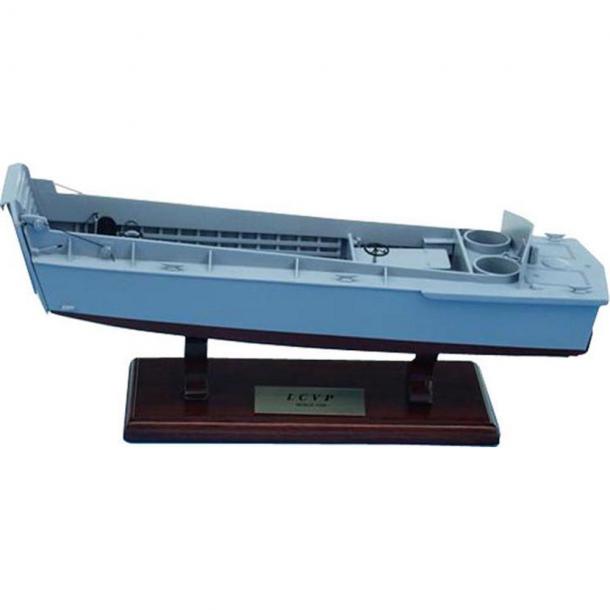LCVP MODEL

The LCVP (Landing Craft, Vehicle, Personnel), or also called as the Higgins Boat, a landing craft mostly used during the World War II. The Higgins Boat was named after Andrew Jackson Higgins who designed and invented it. The LCVP was actually a modification of the Higgins Industries Eureka boat, the Navy version of which was the LCPL (Landing Craft Personnel Large).
LCVP was basically constructed from plywood. This shallow-draft, barge-like boat could ferry a platoon-sized complement of 36 fully armed men (max load is 8,100 lbs) at 9 knots (17 km/h), or a 6,000 pound Jeep, and other equipment and supplies essential to amphibious operations. Men generally entered the boat by climbing down a cargo net hung from the side of their troop transport; they exited by charging down the boats bow ramp.
It was these boats that made the D-Day landings at Normandy, Iwo Jima, Guadalcanal, Tarawa, and hundreds of lesser-known places possible. Without Higgins uniquely designed craft there could not have been a mass landing of troops and material on European shores or on the beaches of the Pacific islands, at least not without a tremendously higher rate of Allied casualties.
More than 20,000 were built, by Higgins Industries and licensees. Few Higgins Boats are displayed at the National D-Day Museum in New Orleans.

Отзывы ещё не добавлены